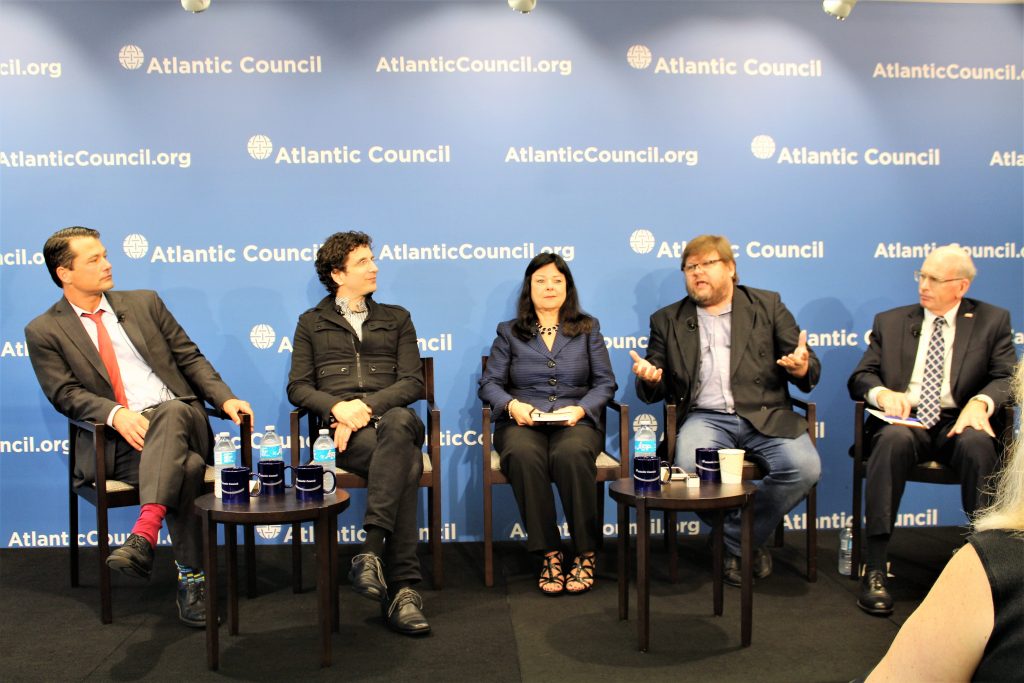On Monday April 22, the Atlantic Council’s South Asia Center hosted a panel discussion on the Afghanistan peace negotiations. The panel was moderated by the South Asia Center’s Nonresident Senior Fellow Fatemeh Aman and focused on the role of regional powers helping to secure stability and peace.
Daud Khattak, Senior Editor of Radio Mashaal, outlined Pakistani interests in the peace negotiations and the driving forces behind their actions in Afghanistan. He noted that Pakistan’s primary concern was to ensure Afghanistan was not used by India to undermine Pakistani interests. Khattak explained that Pakistan wanted to see a functioning Afghan government that would not capitulate to the political interest of India. Referencing the inter-Afghan dialogue, Khattak observed that a social media revolution was taking place in Afghanistan and the Taliban could not commit the atrocities of the 1990s because the Afghan population had the awareness to hold the Taliban accountable.
Ambassador Omar Samad, a Nonresident Senior Fellow with the South Asia Center, reflected on the suspension of dialogue between the Afghan government and the Taliban. While he was disappointed about the suspension, Ambassador Samad expressed optimism about both sides meeting in the future. He encouraged observers to take a bird’s eye view of negotiations and to avoid getting bogged down in the day to day politics of Kabul. Rather, Ambassador Samad suggested the international community give the Afghan government time to establish negotiating positions through an Afghan led process.
Michael Kugelman, Deputy Director and Senior Associate for South Asia at the Wilson Center, discussed a series of conundrums that have characterized the peace negotiations. Among these conundrums was the weakness of the U.S. negotiating position, juxtaposed with the current conditions offering the best chance for peace. He alluded to a failure of past American led attempts to engage in dialogue with the Taliban but noted that this stage was the farthest the U.S. had ever reached. However, Kugelman also suggested the U.S. was losing an opportunity to engage with Russia and China by excluding them from much of the negotiations.
Following the moderated discussion, the panel took questions from the audience. One question focused on whether the Taliban was serious about bringing peace to Afghanistan. While all the panelists expressed optimism about Taliban’s the desire to bring an end to the fighting, the panelists acknowledged the actual process to bring stability and peace would be long and difficult.
Image: (L-R): Jake Braun, Jeff Moss, Sherri Ramsay, Harri Hursti, John Gilligan discc the vulnerabilities in American voting infrastructure.
